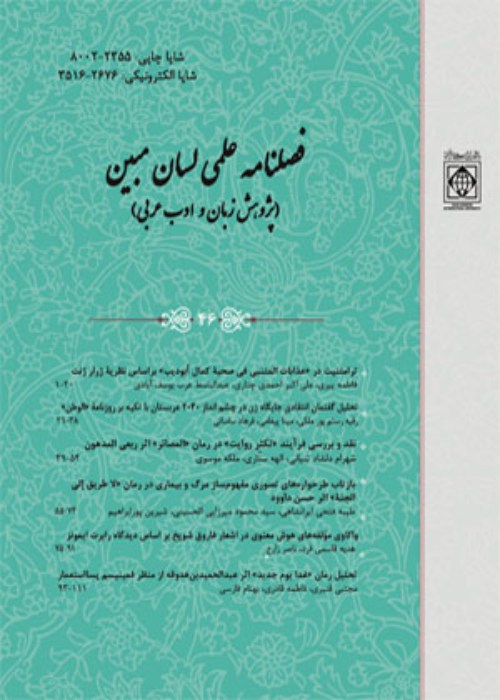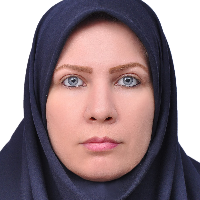Poetic language in the poetic plays of Salah Abdel-SabourCase Study: “After the King Dies” play
Poetic language is the way common and everyday language is used in literary works such as poem, play and other forms of discourses. The characteristic of using this language is the focus on how to express words instead of what to express.The poetic language is a new framework of standard language which deals with art, philosophic and esthetic aspects of language besides its communicative form. Although language of the old plays was in verse, the changes in people’s life and other literary works result in poetic language to become closer to people’s language alongside these changes. The poet’s language follows different rules from that of standard language because it is laconic, i.e., it expresses the most amount of concept with the least words. This language seeks to be a criterion for beauty of art. This is realized through using various techniques and methods such as rhyme, music, poetic images, repetition or grammatical forms of unusual sentences in everyday language. Salah Abdel-Sabour is among the poets who believed in using poetic language for drama conversations. Based on his opinion, poem is the only rightful element of the drama. He used poetic words and inserted them in drama language.The present study seeks to review and analyze the language of Salah Abdel-Sabour poem in his last verse play, “After the King Dies”. It is an important study due to the fact that it shows the poetic language in the play of one of the most prominent contemporary Arab poets based on a descriptive-analytical approach. According to critics’ consensus, his plays are successful example of integrating “poem” and “drama”. Moreover, due to the unique and remarkable characteristics of the plays by this poet, it is necessary to study them from the perspective of language of the poem.This play is about life of a tyrant king and his companions consist of a minister, a judge, a historian, an executioner, a poet, Bohlul and a queen who desires the king’s death and after his death, she escapes with the poet to have a child. The play has three endings and the readers are asked to choose the ending they want.Of the most important findings of this study is: in this play, Abdel-Sabour focused on freedom of thought, expression and humanitarian images and employed symbolic and traditional poetic images drawn from national and universal heritage in the service of social and cultural hopes. The musical image of the play is manifested through the internal rhythm resulting from expressive, subconscious, chromatic and musical repetitions and frequency of five grammatical components (interrogation, imperative, Qualificative, exclamation and Conjunctive of order). In this play, he has distanced from his old eloquence and portrayed various forms of image and imagination. He has merged lyrical language with dramatic language in such a way that makes its comprehension easy for the reader. By deviating from his previous poetic plays, using Tafilih poetic style in his plays and emphasizing simplicity, narration and anecdote, Abdel-Sabour has defamiliarized. Irony is a dominant element in the situations and scenes of the play from beginning to end. The inspirational sources of Abdel-Sabour’s poetic images in this play include: various symbols he has used for model and masked characters to express his nation’s thoughts, emotions and hopes. This is due to the fact that he considers poem as a tool to change society and all these poetic images including symbols and characters drawn from national and universal tradition work for cultural and social hopes which indicates the reality of Arab world, or rather all humanity, and proves that tradition is not separate from contemporary. In some scenes of the play “After the King Dies”, there can be seen its relation to Quran and in some scenes, the playwriting style of Aristotle, Lorca, Shakespeare, Brecht and Elliot is observed.
- حق عضویت دریافتی صرف حمایت از نشریات عضو و نگهداری، تکمیل و توسعه مگیران میشود.
- پرداخت حق اشتراک و دانلود مقالات اجازه بازنشر آن در سایر رسانههای چاپی و دیجیتال را به کاربر نمیدهد.



